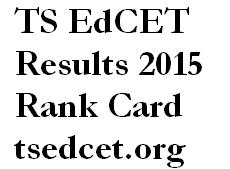Toyota Kirloskar Motor in collaboration with Toyota Motor Corporation and its nationwide dealer network has launched its training model of the General Technician Toyota-Technical Education Program (T-TEP) at Sri Dharmasthala Manjunatheswara Industrial Training Institute, [SDM] Venur. This is the third General T-TEP program in Karnataka, the previous ones being with Deshpande Pvt ITI in Haliyal and Government ITI in Peenya, Bangalore.
T-TEP, a special training module in which Toyota has tied up with ITis, was launched in 2006 in India. The program aims at providing training on the latest automotive technology and service techniques every year to ITI students across India along with providing hands-on, real-time experience within Toyota dealerships.
In its first year, the program was implemented in Delhi, Mumbai, Chennai and Hubli. It was subsequently introduced in Bangalore, Mysore, Lalru, Pune, Kochi, Ahmedabad, Hyderabad, Ghaziabad, Kolkata, Jaipur, Jalandhar, Indore, Vizag, Ludhiana, Cuttack, Haldwani, Nalbari, Gurgaon, Satara and Paramakudi.
After a span of 10 years, TTEP is now associated with 42 training institutes under the program. The General Technician T-TEP training syllabus imparts training on basic automotive fundamentals, Toyota’s way of service and technologies in the company’s cars which can help the students to get jobs in the automotive general repair industry.
According to B Padmanabha, VP – customer service group, Toyota Kirloskar Motor, "The future of our nation lies with the youth. Providing the necessary advance skill and knowledge will ensure increased competency to meet industry and market expectations. When we first established this training module back in 2006, we were essentially compelled by the fact that there were inadequate trained and skilled manpower available in the industry. The purpose of TTEP is to contribute as a sustainable growth partner to automobile industry such that it can grow the technical capability of young India. Our 42nd association with an ITI institute has further reinstated our objective to carve out opportunities for talented students from the rural areas and make them more employable for the Indian automobile industry."
Also present at the occassion was Padma Vibhushan Veerendra Heggade, president, SDM Educational Society. Ujire said "The Make in India initiative will boost economic growth and pave the way for large scale employment opportunities, which will create demand for skilled manpower in the country. With the rise in industrial activity in the region, there will be a significant requirement of more technical and creative skills to sustain in the competitive environment. It is an honour to associate with Toyota Kirloskar Motor which will promote successful industry-institute interaction to bridge the industry- academia gap that persists in India. The unique training model by TTEP will contribute towards increasing the availability of skilled manpower for the Indian automobile service industry in the coming years."
http://www.autocarpro.in/news-national/toyota-expands-technical-education-programme-india-9946
T-TEP, a special training module in which Toyota has tied up with ITis, was launched in 2006 in India. The program aims at providing training on the latest automotive technology and service techniques every year to ITI students across India along with providing hands-on, real-time experience within Toyota dealerships.
In its first year, the program was implemented in Delhi, Mumbai, Chennai and Hubli. It was subsequently introduced in Bangalore, Mysore, Lalru, Pune, Kochi, Ahmedabad, Hyderabad, Ghaziabad, Kolkata, Jaipur, Jalandhar, Indore, Vizag, Ludhiana, Cuttack, Haldwani, Nalbari, Gurgaon, Satara and Paramakudi.
After a span of 10 years, TTEP is now associated with 42 training institutes under the program. The General Technician T-TEP training syllabus imparts training on basic automotive fundamentals, Toyota’s way of service and technologies in the company’s cars which can help the students to get jobs in the automotive general repair industry.
According to B Padmanabha, VP – customer service group, Toyota Kirloskar Motor, "The future of our nation lies with the youth. Providing the necessary advance skill and knowledge will ensure increased competency to meet industry and market expectations. When we first established this training module back in 2006, we were essentially compelled by the fact that there were inadequate trained and skilled manpower available in the industry. The purpose of TTEP is to contribute as a sustainable growth partner to automobile industry such that it can grow the technical capability of young India. Our 42nd association with an ITI institute has further reinstated our objective to carve out opportunities for talented students from the rural areas and make them more employable for the Indian automobile industry."
Also present at the occassion was Padma Vibhushan Veerendra Heggade, president, SDM Educational Society. Ujire said "The Make in India initiative will boost economic growth and pave the way for large scale employment opportunities, which will create demand for skilled manpower in the country. With the rise in industrial activity in the region, there will be a significant requirement of more technical and creative skills to sustain in the competitive environment. It is an honour to associate with Toyota Kirloskar Motor which will promote successful industry-institute interaction to bridge the industry- academia gap that persists in India. The unique training model by TTEP will contribute towards increasing the availability of skilled manpower for the Indian automobile service industry in the coming years."
http://www.autocarpro.in/news-national/toyota-expands-technical-education-programme-india-9946











































